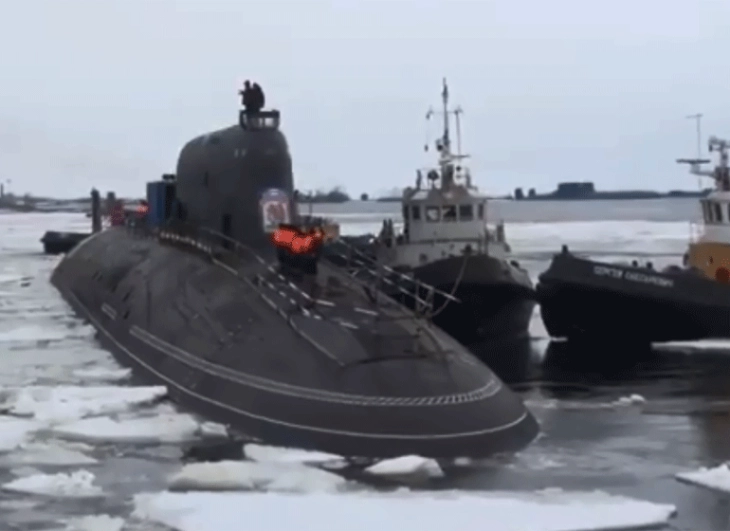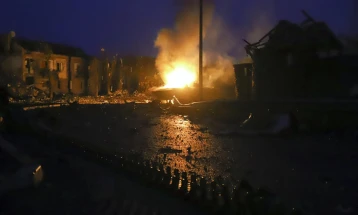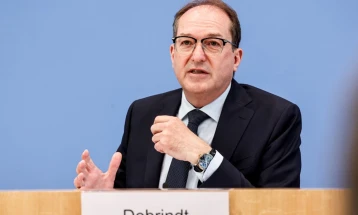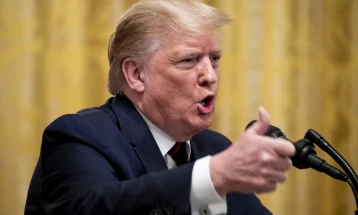Peace researchers assume nuclear arsenals may soon grow again
- Post By Ivan Kolekevski
- 06:52, 13 June, 2022

Stockholm, 13 June 2022 (dpa/MIA) - The Stockholm International Peace Research Institute (SIPRI) assumes that the world's nuclear arsenals will soon grow again in view of current tensions.
Despite a slight reduction in the total number of nuclear warheads to an estimated 12,705 worldwide, the peace researchers reckon in their annual report published on Monday that this number will probably grow again in the course of the coming decade.
"There are clear indications that the reductions that have characterized global nuclear arsenals since the end of the Cold War have ended," SIPRI expert Hans M Kristensen said.
"If the nuclear-armed states take no immediate and concrete action on disarmament, then the global inventory of nuclear warheads could soon begin to increase for the first time since the Cold War," his colleague Matt Korda said.
According to SIPRI's annual report published on Monday, Russia with 5,977 and the US with 5,428 together still possess about 90% of all nuclear warheads in the world.
In 2021, the number of nuclear warheads in both countries declined further, but this was mainly due to the dismantling of discarded warheads, which the military had already abandoned years ago.
In contrast, the number of nuclear weapons in the usable military stocks of the two countries has remained relatively stable.
Both countries have extensive and costly programmes under way to replace and modernize nuclear warheads, delivery systems and production facilities, according to SIPRI.
According to SIPRI, the seven other nuclear weapon states - Britain, France, China, India, Pakistan, Israel and North Korea - have all recently developed or deployed new weapon systems or at least announced this.
None of the countries intends to abolish its nuclear weapons in any way, Kristensen told dpa. On the contrary, China is in the middle of a comprehensive expansion of its arsenal, and Britain announced in 2021 that it will increase the upper limit for its total stockpile of warheads.
For decades, the number of nuclear weapons worldwide has been steadily decreasing. It is now less than one-fifth of what was in the arsenals of the nuclear powers at the height of the Cold War in the 1980s.
Last year, however, SIPRI had already identified a trend reversal towards more modern nuclear weapons.
At the beginning of the year, the five UN veto powers - the US, Russia, Britain, France and China - declared their intention to take action against the further spread of nuclear weapons.
"We emphasise that nuclear war cannot be won and must never be waged," the states said in a joint statement at the beginning of January.
SIPRI complained that all five countries had since further expanded or modernized their arsenals. Russia had even openly threatened the possible use of nuclear weapons in the course of its war of aggression in Ukraine.
"Although there were some significant gains in both nuclear arms control and nuclear disarmament in the past year, the risk of nuclear weapons being used seems higher now than at any time since the height of the Cold War," said SIPRI Director Dan Smith.
The new SIPRI data refer to January 2022, the month before Russia invaded Ukraine. It is still a little too early to draw conclusions about how Russia's war will ultimately affect the nuclear situation in the world, Kristensen said.
But he already sees an indirect effect: The Russians believe that their conventional forces are not as good as they thought, the expert said about the state of the Russian military. Therefore, Russia is likely to rely more on tactical nuclear weapons in the future.
NATO, meanwhile, is reacting to the Ukraine war by emphasizing the importance of its nuclear weapons.
The risk of a nuclear confrontation has increased as a result of the Ukraine war, Kristensen also said. The danger is that the war could escalate into a direct confrontation between Russia and NATO, he said.
The ongoing conflict between India and Pakistan, growing hostilities on the China-India border and North Korea's ongoing nuclear efforts also play a role.
All these things add up, so it is fair to say that the world is in a very precarious state at the moment, Kristensen said.
What is needed now, he said, is first and foremost a relaxation of nuclear rhetoric on the part of the nuclear powers.







